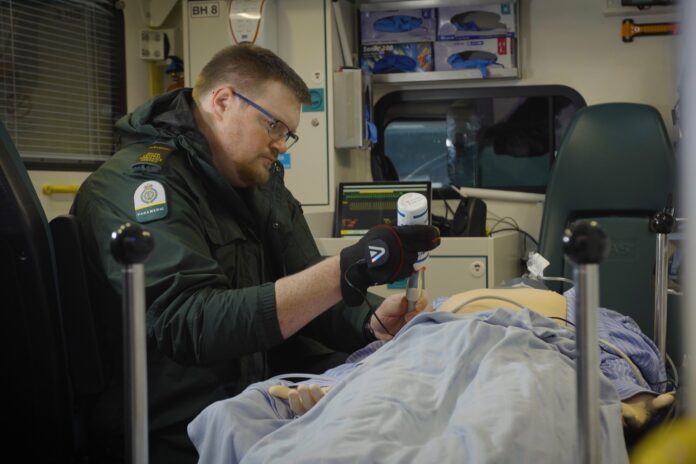Probe finds that price for Airwave well above competitive levels
The UK’s Competition and Markets Authority (CMA) has said that technology service provider Motorola has charged the Home Office “well above competitive levels” for running the Airwave network for the emergency services. It claims that Motorola is making £160 million in excess profits as the Home Office and emergency services appear to be locked in with monopoly provider.
After a year-long investigation, the CMA has said restrictions need to be introduced on the contract to protect public finances. In a statement, it said it seems like Motorola can charge the UK emergency services prices that are “well above competitive levels”. Motorola would make £1.1 billion in excess profits from Airwave between January 2020 and December 2026 under the existing contract, said the CMA. So lucrative is the contract that in 2020 the Airwave Network accounted for around 7% of Motorola’s global revenues and around 21% of Motorola’s global pre-tax profits,” the CMA said in a statement.
Auditors found that the price set in 2000 covered the capital cost of building the Airwave Network. This contract was due to expire in 2019. After the network building had been completed costs to the Home Office should have fallen substantially. “This did not happen, and prices remained at substantially the same level,” said the CMA. The original Home Office tender made the provisos that the Airwave Network would be replaced by a secure 4G network. A 4G Emergency Services Network (ESN) is being built – with Motorola as a provider – but it has been delayed and won’t be ready until 2026.
The CMA said it was concerned about the involvement of Motorola as operator of Airwave and builder of ESN. “If the roll-out of the new ESN continues to be delayed, Motorola could make around a further £160m excess profit each year after 2026,” the CMA said in a statement. “It is vital that the market for critical mobile radio network services used by our emergency services works well and provides an excellent service at a fair price,” said Martin Coleman, chair of the CMA’s independent inquiry group, hinting at the shortcomings of the contract fulfilment.
The price of the network suggests that the market is not working well, said Coleman, and the CMA concluded that the UK’s Home Office is locked-in with a monopoly provider over the contract for networking the nation’s emergency services. Motorola can charge much more than it could in a properly functioning market, while taxpayers foot the bill, Coleman said. “We are therefore proposing a direct intervention through a price control to stop this and lay the basis for the Home Office to decide how it intends to ensure these vital services are to be delivered in future.”
A representative of Motorola contacted Mobile Europe to refute the allegations. Here is their statement:
“Motorola Solutions entirely rejects the CMA’s unfounded and incorrect calculation of “excess” profits, which is based on an arbitrary time period of the Airwave project. The fact is that Airwave, over its life, is a much better deal for the U.K. taxpayer than the Home Office originally agreed.
In 2016, both the CMA itself and the Home Office approved all of the Airwave contracts that remain in place today. Airwave has been relied upon by the U.K. emergency services for the past 22 years. Despite the CMA finding no shortcomings in Airwave’s exceptional service, or any material change in the cost to run this mission-critical network, the CMA is proposing to forcibly reduce the contractually agreed price for the remaining years of the contract. Such unprecedented intervention would severely undermine confidence in long-term infrastructure investment and contracting with the U.K. government.
As this is a provisional decision, Motorola Solutions will continue to work with the CMA to demonstrate the excellent value for money the Airwave network provides to the U.K. taxpayer. At the same time, Motorola Solutions will pursue all legal avenues to protect its contractual position for the benefit of the 300,000 emergency services personnel who rely on the Airwave network – and the people they protect – every day.”


